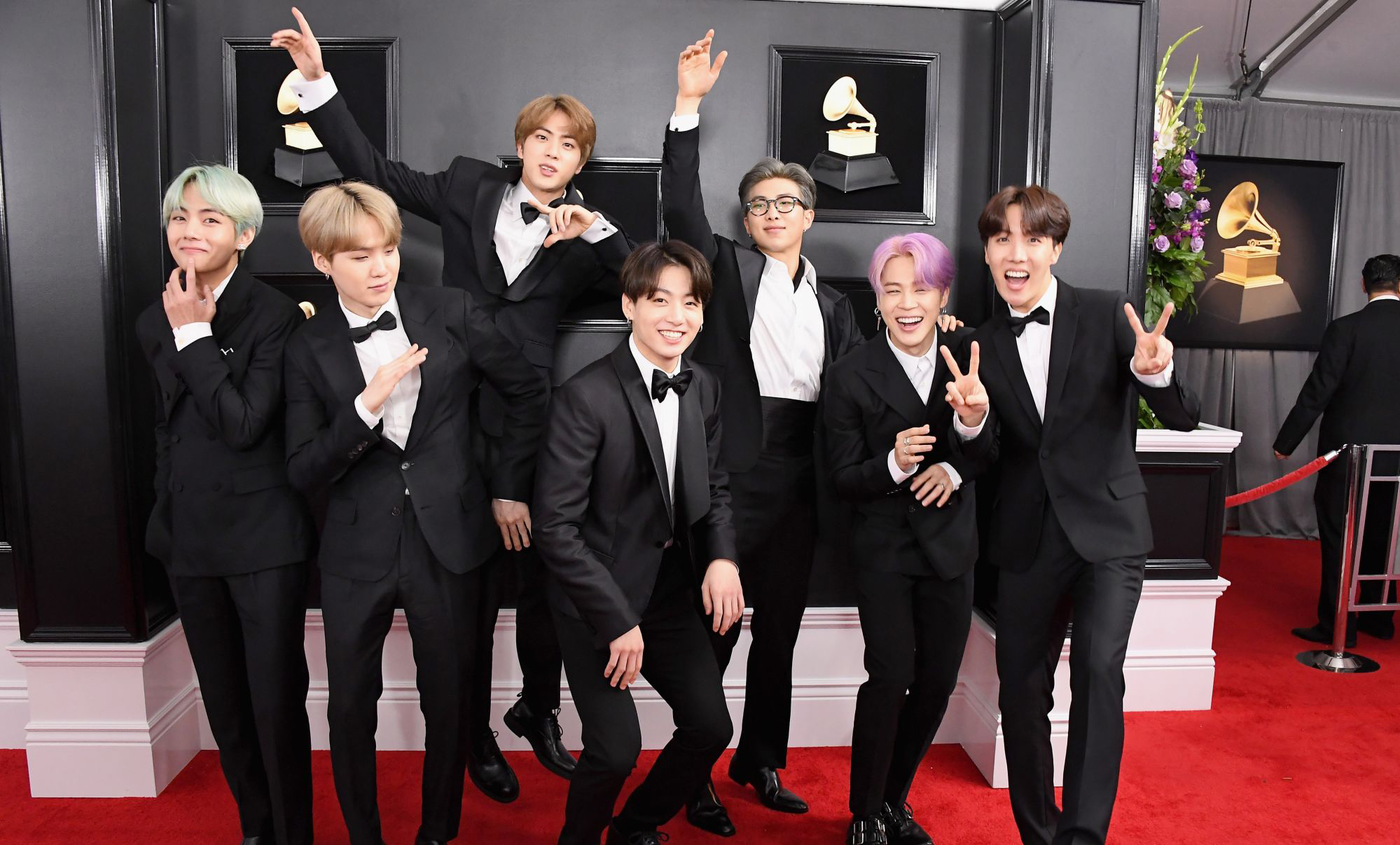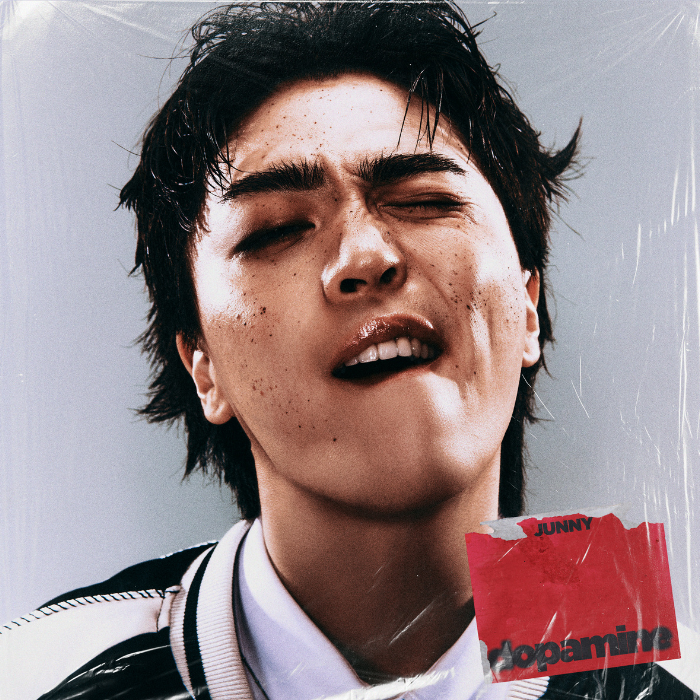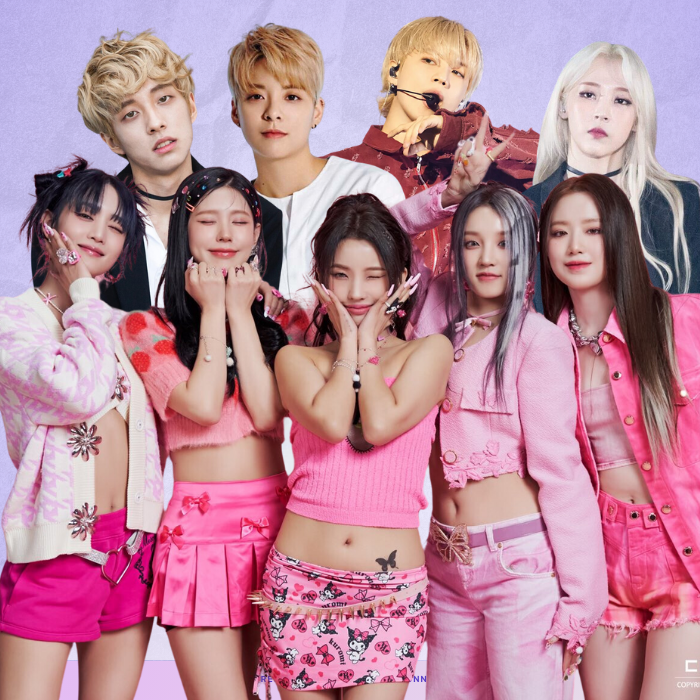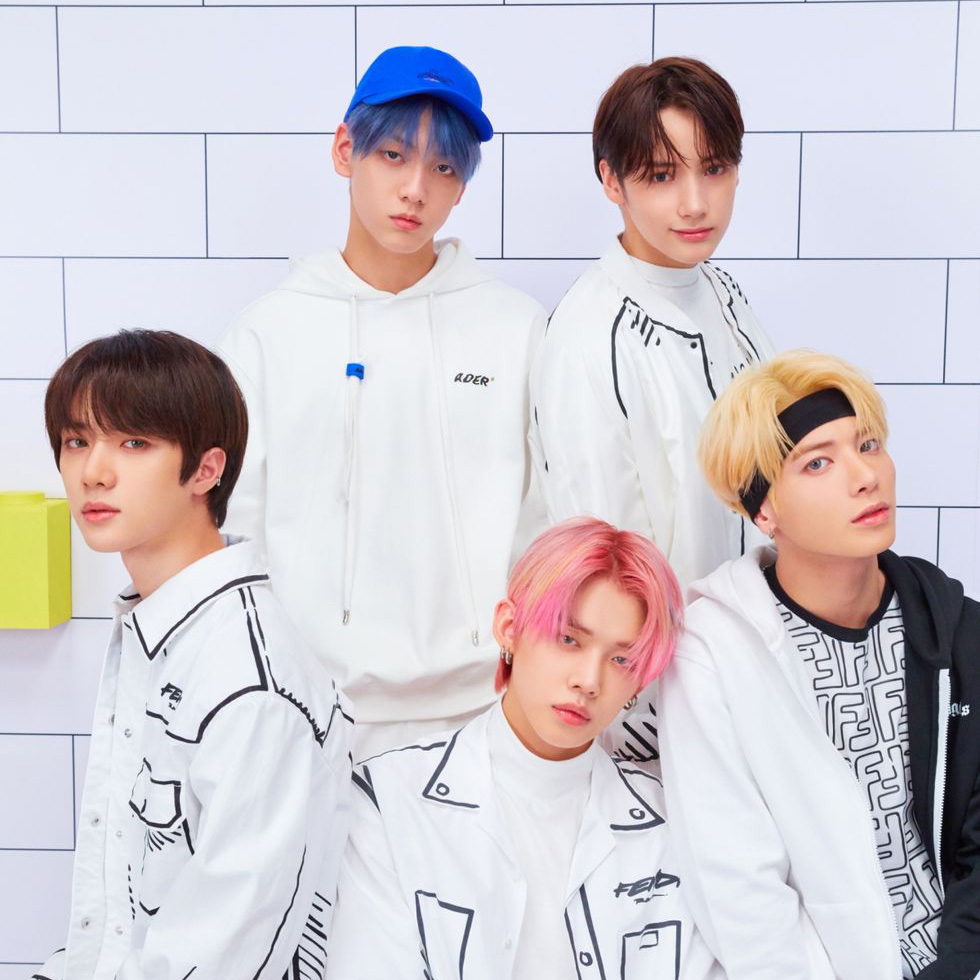To say that BTS is currently the biggest boy-band in the world would be an immense disservice to the South Korean septet. The term ‘boy-band’ doesn’t quite capture how, in the eight years since their debut, BTS have overcome financial, linguistic, and cultural barriers, garnered both critical and commercial success, broken and set countless records, and quite literally, made musical history: the term ‘musical icons’ is more apt.
The group was just named as the newest house ambassador for luxury apparel brand Louis Vuitton. Louis Vuitton ranked number 9 on Forbes’ 2020 Most Valuable Brands ListーBTS have already collaborated with number 8 (Samsung) and number 10 (McDonalds) on the list. Its decision to collaborate with BTS is not only evidence of the group’s enormous popularity and brand value, but hopefully marks the beginning of the group being treated with the admiration they deserve. Because despite the numerous accolades and achievements BTS have amassed, there is one thing they are often denied: respect.
BTS, for the unfamiliar, stands for Beyond the Scene or Bangtan Seonyeondan (which translates to Bulletproof Boy Scouts in Korean). The group comprises of seven members: Jin (Kim Seok-jin), Suga (Min Yoon-gi), J-Hope (Jung Ho-seok), Jimin (Park Ji-min), V (Kim Tae-hyung), and Jung Kook (Jeon Jeong-guk), led by RM (Kim Nam-joon), and debuted in 2013 under Big Hit Entertainment (which has since rebranded to Big Hit Music) with “No More Dream.” Though their initial releases were met with modest success, their early adoption of social media helped them connect with their fans in an authentic way and amass a large international fanbase.
This large fanbase—dubbed ARMY (Adorable Representative M.C. for Youth)—in turn, led the group to win Top Social Artist at the 2017 Billboard Music Awards (BBMA). Not only did the group end Justin Bieber’s six-year streak with their win but they also became the first Korean group to win the award. The media buzz surrounding their achievement, combined with the power of ARMY, helped BTS break through the oft-impenetrable wall that is the Western music scene. Breaking down biases and ignorance, however, was not as easy.
In a statement posted to their Twitter following shooting in Atlanta, BTS admitted that they, too, “faced discrimination as Asians.” Though the group mostly touched on being mocked for their appearance and their English, one does not have to dig deep to discover a pattern of both overt and covert racism that BTS has faced since gaining global recognition.
A short history of the media’s disrespect towards BTS…
Last week a Chilean TV Show Mi Barrio aired a racist, xenophobic skit parodying the group. In the skit, the actors portraying the members introduced themselves as “Kim Jung Un,” “Kim Jung Dos,” and so on, mocked the Korean language, and made jokes about getting vaccinated. Though the show’s network released a (non)-apology after backlash from BTS fans, this is just one of the many instances of racism or disrespect that the group has faced this year alone.
In February this year, Matthias Matuschik, a radio host for German radio station Bayern 3, likened BTS to a “some crappy virus that hopefully there will be a vaccine for soon as well” after calling their cover of Coldplay’s “Fix You” “blasphemy,” according to the Associated Press. Matuschik argued that his comments weren’t racist because he had a South Korean car (his car is Japanese), and then stated that BTS “will be vacationing in North Korea for the next 20 years,” in penance for their cover. A month later, collectible manufacturing company Topps released a collection of the 2021 Grammy-themed cards for their Garbage Pail Kids series. A card in the collection featured the group battered and bruised by a game of Grammy Whac-A-Mole. Both Bayern 3 and Topps released a non-apology for after backlash from ARMYm, as well past BTS collaborators Halsey, Steve Aoki, Zara Larsson and Lauv in Bayern 3’s case.

Last September, BTS delivered a message of hope to their fans during the 75th U.N. General Assembly. Jon Henley, a writer for The Guardian, said “the end [is] nigh” in response to a tweet about the message while Anne McElvoy, senior editor of The Economist responded to the same tweet with “please no.” Though McElvoy deleted the tweet when she was met with backlash, claiming that it was “taken the wrong way,” several media personalities came to her defense, which echoed the disrespectful undertones of her original tweet. The most egregious of them was Anne Hegerty, a contestant on British game show The Chase, who called BTS “a little Korean boy band that’s fundamentally not important,” elaborating that their music was for “people who feel a bit confused and lost.”
During a discussion about COVID-19 on the February 24, 2020 episode of the The Howard Stern Show, show staffer Salvatore “Sal” Governale linked BTS to having the virus, claiming, “There’s no way those guys don’t have the coronavirus.” A few months prior, in December 2019, commentators on German TV show RTL Chartshow watched a BTS music video and wondered aloud if the group was Japanese or Korean, calling the members Japanese albinos, and misgendering them before dismissing them as something for teenagers.
In June 2019, Australian TV station Nine Network’s show, 20 to One, aired an episode counting down a list of worldwide crazes. They described BTS―number 18 on the list―as the “the biggest band you’ve never heard of,” despite the fact that the group had made Australian chart history earlier that year. They wondered how they had gotten a Billboard #1 in America when only one member spoke English, speculated that BTS probably talked about hair products at the UN, and joked that the group could probably reunite the two Koreas. The show also featured a soundbite from British comedian Jimmy Carr, who said, “When I first heard something Korean had exploded in America, I got worried.” The show also featured a soundbite from infamous America blogger Perez Hilton, who derided BTS fans for attacking him when he asked if any BTS members were openly gay (insinuating that some of them might be gay due to their appearance)—insensitive to the fact that male K-Pop idols are frequently called gay as an insult for not fitting the Eurocentric ideal of masculinity.
In 2018, iHeartLatino DJ Enrique Santos derided BTS during an interview with Latin American band CNCO, calling them the “Korean version of CNCO.” The band eventually joined in, singing gibberish in tune to their song “Mamita” to mimic what it would sound like in Korean.
In reality, this “disrespect” is inherently racist
BTS has been subject to casually racist comments on social media on an ongoing basis. Many viewers, as Buzzfeed and HuffPost reported, responded to the group’s 2017 BBMA win by referring to them as “these Asians,” who needed to “go back to Korea,” since they and K-Pop were “irrelevant” in the U.S. This mindset has not abated: as recently as May 2019, people did not hesitate to leave racist replies underneath tweets by the Los Angeles Dodgers and ESPN accounts mentioning BTS member Suga, who attended a Dodgers game.
As Jae-Ha Kim explained in her piece for Teen Vogue, these incidents did not occur in a vacuum. Rather, they are the by-product of a combination of white supremacist and Yellow Peril ideologies that have festered in the West for years. White supremacist ideology posits that white people are superior to all other races. It justifies this superiority, in part, with the Yellow Peril ideology that assumes that all Asians are unclean, uncivilized, and pose a threat to Western norms. These ideologies led to years of discriminatory laws and incidents that exacerbated the marginalization of Asian people in North America—like the Chinese Immigration Act of 1885 in Canada, to name one—and have caused a drastic rise in the rate of hate-crimes against Asian people around the world during COVID-19, especially in the US and Canada. Asian people of all ages and backgrounds, like this 16-year-old boy in California’s San Fernando Valley and this 89-year-old woman in Brooklyn, have been threatened, attacked, and even set on fire simply because they were Asian and assumed to be carrying the coronavirus.
Racist and xenophobic comments about BTS reinforce these ideologies and beliefs. Comments likening BTS to a virus or virus-carriers reiterate the notion that Asian people are dangerous and literally justify violence against them. Statements that deride the group, their music, and their large fandom as strange or irrelevant, and dismiss their achievements in the West as unimportant, on the other hand, reinforce the notion that only white artists’ music can hold universal appeal, and only their activities and accomplishments deserve praise and recognition.
Statements that deride the group, their music, and their large fandom as strange or irrelevant, and dismiss their achievements in the West as unimportant, on the other hand, reinforce the notion that only white artists’ music can hold universal appeal, and only their activities and accomplishments deserve praise and recognition.
And Western media, brands and celebrities are capitalizing on BTS’ success, using them as audience-increasing props
This notion of only white or Western artists deserving recognition and respect has also led BTS to be subjected to a subtle but no less sinister form of disrespect: being used as audience-increasing props.
After BTS’s 2017 BBMA win, the group was increasingly interviewed by major American news outlets and invited to appear and perform on U.S. talk shows. However, it became apparent during many of these interviews that many journalists dismissed BTS as a strange novelty that would garner a large audience, rather than serious artists deserving of respect. The questions journalists posed to BTS (when they didn’t crowd-source them) ranged from shallow (like near-identical questions about their favourite American foods, their Hollywood crushes, and American artists they listened to), to sinister (like gotcha questions about their fans and BTS’ interactions with their them—à la Ellen Degeneres’ infamous question about whether BTS hooked up with ARMY), to offensive—like a caller on Ryan Seacrest’s radio show asking the group when they would release music in English.
Several journalists not only didn’t know BTS’ names (like KTLA’s Sam Rubin) but also asked them whether they performed while singing (like Mario Lopez), which betrayed their unwillingness to properly research the group, and led to some incredibly awkward interviews. The worst example of this is BTS’ profile in The Hollywood Reporter by Seth Abramovitch. Not only did Abramovitch explicitly admit “to being a little fuzzy on some of the finer points of BTS history” in the very article, but he then defended it as being “the only decent profile written about that band.” If “decent” means poorly researched (maknae is an actual word in Korean, not just a K-Pop term) and othering, then sure.
This disrespect wasn’t limited to BTS. NCT, SuperM, Monsta X, Blackpink, and nearly all other K-Pop groups promoting their music in the West have sat through their fair share of awkward interviews. In fact, there are so many of them that fans created a compilation.
Media outlets were not alone in treating BTS as a novelty while simultaneously using them for “clout.” BTS’ 2017 BBMA win marked the beginning of the group being nominated for, and appearing and/or performing at, Western award shows. Though BTS deserved these nominations (and subsequent wins), some of them seemed like ploys to secure a BTS appearance and benefit from the large audience they brought with them. This certainly seemed to be the case at the 2021 Grammy awards, where the group lost the award for Best Pop Duo/Group Performance—their first Grammy nomination ever—to Lady Gaga and Ariana Grande’s “Rain On Me” despite outdoing it in every regard.
However, it was not the Grammy’s disappointing yet unsurprising decision—the Recording Academy has a long history of snubbing deserving artists—that was disrespectful. It was their treatment of the group as eye-candy to boost their declining viewership. The Grammys built anticipation for BTS’ performance by advertising them as “coming up next” during every break, only for BTS to perform at the very end and for a noticeably shorter duration than all other performers that evening. This treatment was a repeat of the group’s 2017 American Music Awards (AMA) performance where they were also repeatedly advertised as “coming up next,” but performed second-last. Their four-minute long performance was hampered by poor camerawork and audio issues. It was only marginally better than the 2020 Grammys, where BTS essentially served as backup dancers during Lil Nas X’s performance of “Old Town Road.”
Not only did Western award shows use BTS and their large fanbase for clout, but they also provided many Hollywood celebrities an opportunity to do so, too. Several celebrities sought BTS out during award shows to take pictures with them (or interrupted their pictures during the red carpet, like Sophia Carson). Some of these meetings felt incredibly genuine, like John Legend, who brought his own album for BTS to sign while meeting the group at the 2018 BBMAs or Drake, whom the group has been vocal fanboys of and were clearly incredibly excited to meet (Taehyung, especially). However, others denoted BTS’ visible discomfort, like this picture of American singer Rachel Platten and BTS where she is sitting on RM’s lap, or this one of YouTuber Lele Pons and V, both from the 2017 AMAs.
The most recent Hollywood celebrity to capitalize on BTS’ built-in audience is Jason Derulo. The singer, who collaborated with BTS for the remix for his song, “Savage Love,” admitted to Degeneres that he only realized how popular the band was after he saw them beat out Justin Bieber and Ariana Grande for an award. He later failed to acknowledge them when the remixed version of the song hit #1 on Billboard and promptly received backlash for it.
Celebrities unable to secure pictures or collaborations name-drop BTS during interviews or on Twitter, like American singer Jacob Sartorius who tweeted “bts hits different” without any context. The name-dropping is not limited to celebrities: corporate Twitter accounts have also begun mentioning their love for BTS, among other K-Pop groups, for increased engagement from their fans. As Elizabeth De Luna noted in an article for Teen Vogue, companies from NASA to Airbnb to Pantene Pro-V to Target to Bagel Bites all waxed lyrical about their love for BTS to court engagement from ARMYs, and it worked: Bagel Bites’ engagement alone grew more than 422 per cent after they began tweeting about BTS, according to De Luna.
The relationship between celebrities, award shows, corporations, and media outlets is often transactional where all parties benefit either monetarily or through exposure—which often leads to monetary gain. One can argue that interviews with Western outlets, appearances at Western award shows, and interactions and collaborations with Western celebrities help BTS reach a larger audience. However, the increased views, clicks, and social media mentions these Western institutions receive after featuring BTS is evidence of the opposite occurring. This treatment of BTS as popularity-boosting props rather than artists who work hard to perfect their craft closely mirrors a popular Hollywood trend of featuring Asian characters whose sole purpose is to further the white leads’ stories. This treatment is disrespectful and again reiterates the notion that only white or Western artists, who also enjoy a transactional relationship with these institutions, are deserving of respect (and well-researched interviews).
This treatment of BTS as popularity-boosting props rather than artists who work hard to perfect their craft closely mirrors a popular Hollywood trend of featuring Asian characters whose sole purpose is to further the white leads’ stories.
Ultimately, Western media’s continuous disrespect of BTS, whether it is subjecting them to racist, xenophobic comments at their expense or treating them as literal objects to further their own interests, is rooted in anti-Asian sentiment. This disrespect has real-life consequences: not only does it make BTS as well as other Asians witnessing their disrespect feel powerless, but it also fuels anti-Asian violence. For this reason, it must end.
“We all have the right to be respected,” BTS said in their statement decrying anti-Asian hate. “We will stand together.” One can only hope that the institutions and individuals who have disrespected them, and other Asians by extension, listen and learn.











